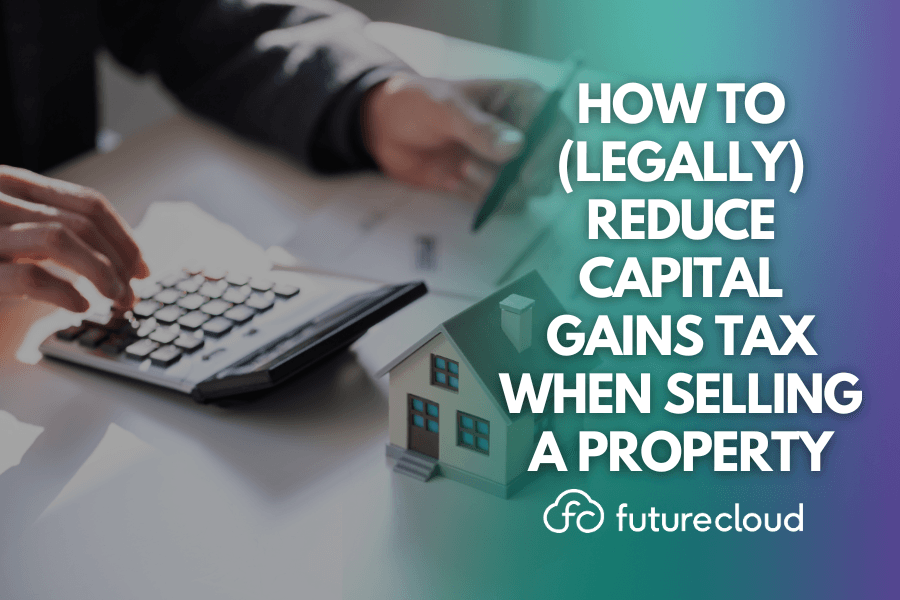If you’re thinking about selling a property that isn’t your main home, maybe a rental, second home, or one you’ve inherited, it’s important to understand the Capital Gains Tax (CGT) side of things. This is something we’ve spoken to clients about, and the same few questions come up, “How much tax will I pay?” “Is there any way to reduce it?”
“Can I avoid it completely?”
So, in this post, we’ll walk you through the legal ways to reduce your Capital Gains Tax bill, based on what’s available under current HMRC rules (as of the 2025/26 tax year), with practical examples, and realistic advice.
What is Capital Gains Tax on property?
Capital Gains Tax is a tax you pay on the profit (gain) you make when you sell (or “dispose of”) a property that’s not your only or main home.
This could include:
- Buy-to-let properties
- Holiday homes
- Inherited property that you later sell
- Properties flipped or renovated for profit
You’re taxed on the gain, the difference between what you paid for the property and what you sold it for, minus any allowable costs or reliefs.
How much CGT will I pay?
As of the 2025/26 tax year:
- Basic-rate taxpayers may pay 18% on the gain (after allowances)
- Higher and additional-rate taxpayers pay 24%
- Everyone gets a CGT annual exemption of £3,000 (reduced from previous years)
So yes, CGT can be a substantial cost. But there are ways to reduce Capital Gains Tax on property it if you plan ahead.
Legal ways to reduce or avoid CGT on property
Here are the main tax reliefs and strategies you can use:
1. Private Residence Relief (PRR)
If the property was your main home at any point, you may be able to claim Private Residence Relief. This could wipe out part, or even all, of your capital gain.
What does it cover?
- The period when you lived in the property as your main residence
- The last 9 months of ownership (even if you weren’t living there)
Example:
You owned a property for 10 years, lived in it for 6, and rented it out for 4. You’ll only pay CGT on the 4 years it was let.
Important:
- This only applies to properties that have genuinely been your main home
- You can’t claim PRR on second homes or buy-to-lets unless you lived there
- There are specific circumstances that may extend the PRR relief period even though you don’t live there.
2. Lettings Relief (limited but still exists)
Lettings Relief used to be widely available, but since April 2020, it’s only allowed in very specific cases, mainly if you let out part of your home while living in it.
Maximum relief is up to £40,000
But only if you lived in the property at the same time as your tenants (e.g. renting out a room under the Rent a Room Scheme)
For most landlords, this won’t apply anymore, but it’s worth checking with your accountant.
3. Transfer property to your spouse or civil partner
Assets can be transferred between married couples and civil partners with no immediate tax, including property.
This could help you:
- Use both partners’ CGT exemptions (£3,000 each)
- Make use of a lower income tax band, potentially reducing the CGT rate to 18%
The receiving spouse inherits the original base cost of the property, not its value at the time of transfer.
4. Time the sale across tax years
Selling just before or after the 5th April tax year-end can make a big difference. Timing your sale carefully can:
- Give you a fresh CGT allowance
- Allow couples to split ownership and use two sets of allowances
Example:
If you complete a sale on 4th April 2026, that’s one tax year. If you complete on 6th April 2026, it’s the next tax year, and you get another £3,000 CGT exemption.
5. Deduct allowable costs and capital improvements
To work out your gain, you can deduct certain buying, selling, and improvement costs.
These include:
- Stamp Duty Land Tax
- Legal fees
- Estate agent fees
- Costs of improvements (e.g. extensions, loft conversions, but not repairs)
Keep all receipts and records. HMRC can ask for evidence.
6. Offset capital losses
If you’ve made a loss on another investment (such as shares or another property), you can offset that loss against your property gain.
Losses can be:
- Used in the same tax year
- Carried forward to future years (as long as reported to HMRC)
Need help with Capital Gains Tax?
At Future Cloud,we help clients across the UK understand their Capital Gains Tax obligations, and make sure they’re claiming all the reliefs they’re legally entitled to.
Whether you’re:
- Selling a buy-to-let,
- Inheriting a property,
- Planning a future disposal
We’re here to make the tax side clear and manageable. Get in touch!
Email us on info@future-cloud.co.uk
And don’t forget to follow us on social media for the latest updates, tips, and more!


